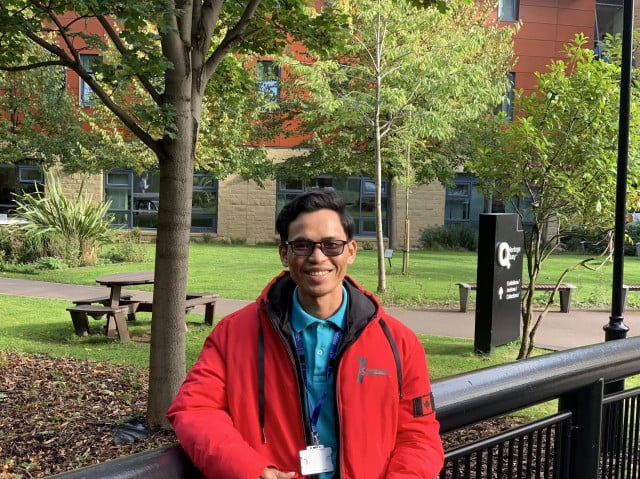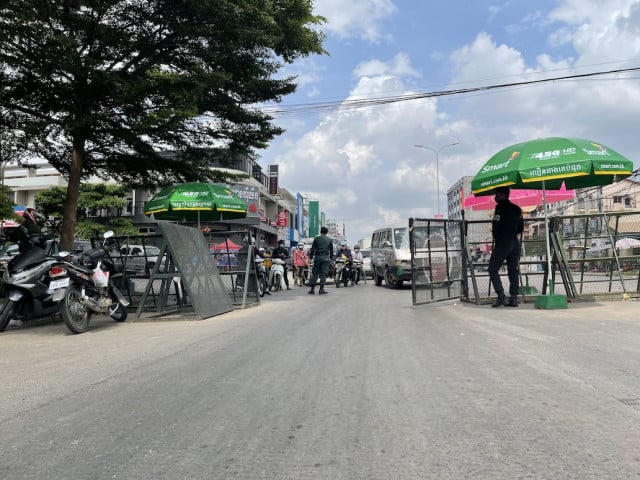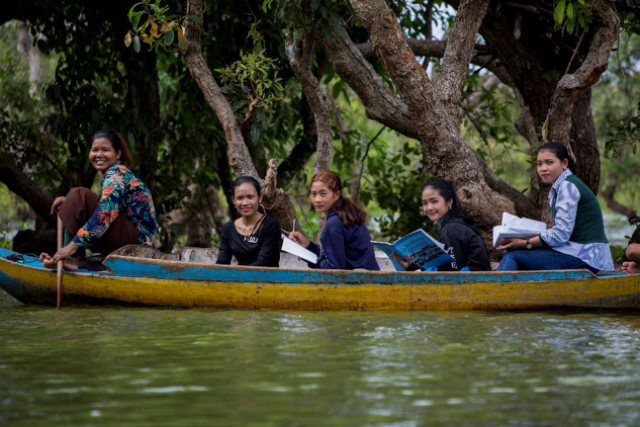Fighting to Ensure Workers Aren’t Left Behind
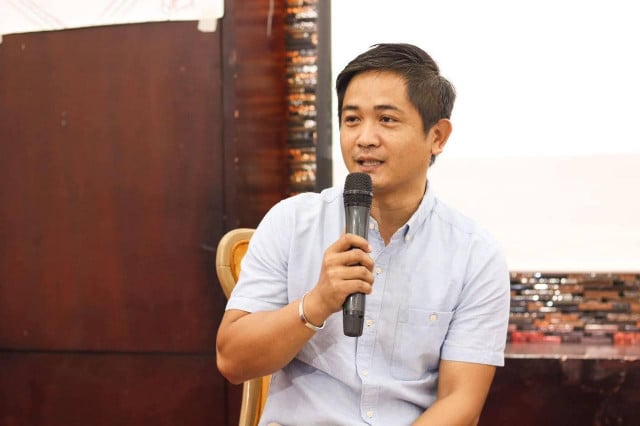
- By Phoung Vantha
- December 10, 2021 11:15 AM
Cambodianess sat down with veteran labor rights advocate Khun Tharo to find out how Cambodian workers have fared throughout the COVID-19 pandemic and what the future might hold
Phoung Vantha: Firstly, could you introduce yourself and explain a bit about how you came to work with CENTRAL? What attracted you to the field?
Khun Tharo: I’ve worked in the labor sector for more than 10 years now, first with the American Center for International Labour Solidarity (ACILS) and now with CENTRAL since 2018. I was attracted to the field because of the significant importance that labor rights have in society. In the capitalist world in which we live, success is more often than not measured by the economy and in particular company profit levels. In this context, when we speak about human rights, workers’ labor rights can sometimes be left by the wayside because of the perceived impact that actively demanding workers’ labor rights can have upon company profits. With that in mind, I think it’s extremely important to fight for workers’ rights to ensure that they aren’t left behind.
Phoung Vantha: In your opinion, what are the key issues that Cambodia’s workers face in terms of rights? How have things improved in recent years and which areas still need more work?
Khun Tharo: The first and most important issue naturally is wages. If we look at the textile sectors for example, despite the existence of the annual minimum wage setting mechanism, workers’ wages remain far below a living wage level, leaving them impoverished and forcing workers into cycles of indebtedness. If we look at other sectors like construction, entertainment or tourism where there is no minimum wage set, the circumstances are even worse for workers. Another issue is freedom of association where we can see there are still significant obstacles in place for trade unions seeking registration and instances of targeted harassment and discrimination against local trade union leaders and activists who actively seek to promote and protect workers’ rights and benefits.
Phoung Vantha: How has CENTRAL been affected by the COVID-19 pandemic? Has it made it more challenging dealing with migration issues?
Khun Tharo: The pandemic, and the associated health measures to stem the flow of the virus, have certainly had an impact on our outreach abilities insofar as that restrictions on gatherings have prevented us from being able to organize direct meetings with workers. Whilst online meetings were a viable alternative for many people, it is often difficult to organize online meetings with workers who have a low level of technological literacy. Thankfully our work with migrant workers has not been too heavily affected due to work we had done prior to the pandemic in organizing strong, active networks of Cambodian migrant workers overseas. We have therefore been able to lean on those networks overseas to coordinate work with migrant workers overseas. Even in cases where we haven’t had already existing networks, for example a case involving 84 Cambodian migrant workers in Jordan in 2020, we have still been able to successfully reach out to those workers via other means and successfully resolve the issues they were facing.
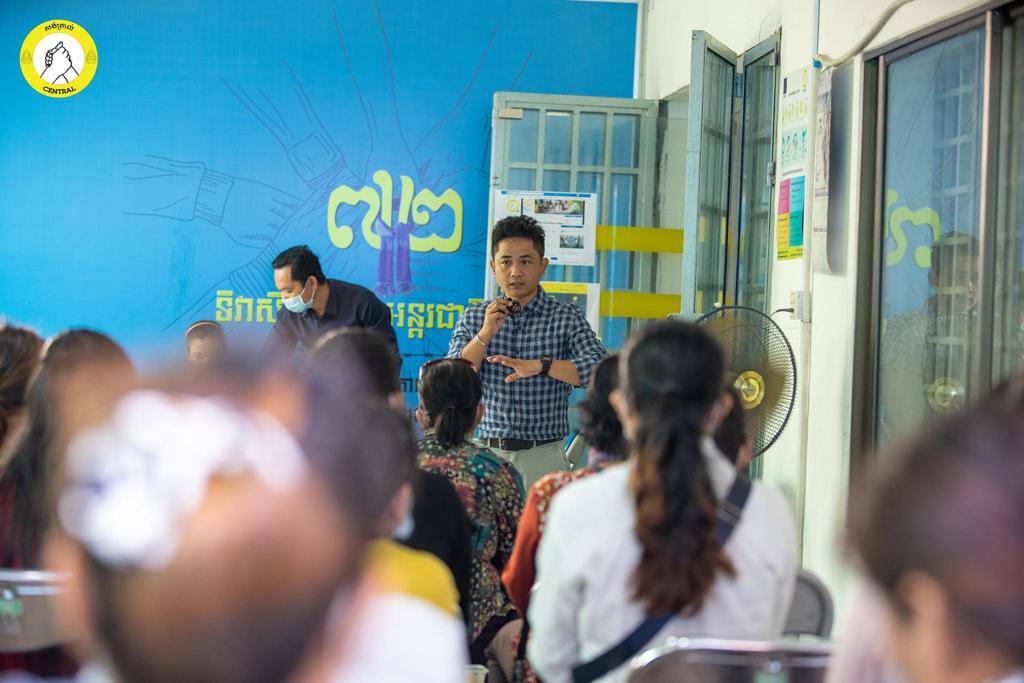
Phoung Vantha: Do you feel the government has been successful in safeguarding the rights of migrant workers during the pandemic? What about dealing with union-busting and wage-theft which we have heard a lot about during the pandemic?
Khun Tharo: The government is certainly paying more attention to issues faced by Cambodian migrant workers, but more still needs to be done, including to ensure workers are protected before they migrate overseas, whilst they are overseas and when they return to Cambodia. Union-busting is a significant issue which the government needs to take steps to address. There remain a number of loopholes in the current legal framework whereby employers are still able to undermine trade unions, especially for trade union leaders employed on fixed duration contracts who can often be dismissed at the employer’s will with no legal recourse. In terms of wage loss, whilst the government’s $70 monthly allowance scheme for suspended workers has been generally well-implemented and can serve as a model for future social protection policies, the fact is that $70 per month is far too low an amount to be able to live on.
Phoung Vantha: CENTRAL often deals with quite distressing issues, how does this affect you and your staff and do you feel as though the government has made it harder to advocate effectively for the rights of workers?
Khun Tharo: It certainly has an effect. You can’t help but become almost personally attached in many of the cases we deal with because of both the injustices we see and the devastating effect it has on already-vulnerable people. If I compare our situation to other civil society organizations operating in Cambodia though I would say we have been quite fortunate that none of our staff have been targeted with criminal or other sanctions, with the obvious exception of our executive director in 2018, although the charges against him were later dropped. As with much of civil society though we are often colored as being an opposition group, though the truth of the matter is that we are not aligned with any political group or organization. Our mission is solely to protect and promote the rights, freedoms and interests of Cambodian workers.
Phoung Vantha: What steps do you see as necessary for both government and the private sector to take in order to better protect the future of work in Cambodia and do you think there is much will to do these things?
Khun Tharo: The government needs to strengthen laws to ensure the protection of workers’ rights and benefits and in particular the Law on Trade Unions which still fails to meet core international labor standards. It is the nature of capitalism that the private sector will do all they can to find loopholes or skirt around the law for their own benefit. With this in mind, stronger legal enforcement is something the government needs to focus on to ensure that companies are properly and adequately penalized for their failures to properly apply Cambodian law.






